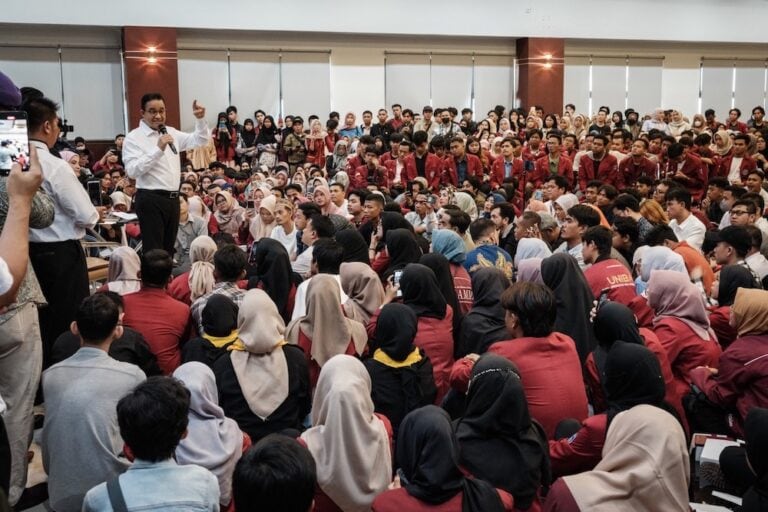The AMARC regional coordinator mentioned the lack of proper enabling legislation as the single principal barrier to community radio sustainability and called for a fair, open, transparent, and efficient process of awarding and regulating broadcasting licences for community radios.
(AMARC/IFEX) – May 10, 2012, Jakarta, Indonesia – The World Association of Community Radio Broadcasters (AMARC) has called for legislative reform and equitable distribution of the radioelectric spectrum for the growth of community radio in Indonesia and the Asia Pacific region.
Presenting a paper on sustainability challenges for community radios at the Radio Asia Conference 2012, held from 7-9 May 2012, in Jakarta, Suman Basnet, Regional Coordinator of AMARC Asia Pacific, mentioned the lack of proper enabling legislation as the single principal barrier to community radio sustainability and called for a fair, open, transparent, and efficient process of awarding and regulating broadcasting licenses for community radios.
The slow process of licensing of community radios in Indonesia is of particular concern to AMARC as it has seriously hindered the sustainability and development of community radio stations in that country.
AMARC advocates for recognition of community broadcasting in law and regulation and reservation of radio frequencies for the sector without excessive limitations placed on transmission power, content format & design, or other technical parameters.
Sinam Sutarno, President of the Indonesian Community Radio Network (JRKI) along with Al Faridah St. Infirohah, General Secretary of JRKI, represented the Indonesian community radio sector at the conference, which concluded yesterday in Jakarta, Indonesia.
Highlighting the role of community radios in disaster preparedness and risk reduction, as evidenced in the several unfortunate situations of natural disaster in Indonesia in recent times as well as in the past, Mr. Basnet called for a greater recognition of the sector for its contribution as a force for social and economic good.
The Radio Asia Conference, which saw a congregation of all sectors of the broadcasting media of Asia and Pacific, ran panel discussions and presentations on subjects ranging from radio’s role in environmental protection to disaster risk reduction, from managing radio content to adapting new technologies, from linking radio and social media to new strategies in broadcasting. AMARC and JRKI represented the community radio sector at the conference, which was organized by the Asia Pacific Broadcasting Union and Asian Media Information & Community Centre.
Through service to members, networking and project implementation, AMARC brings together a network of more than 4,000 community radios, Federations and community media stakeholders in more than 130 countries. The main global impact of AMARC since its creation in 1983, has been to accompany and support the establishment of a worldwide community radio sector that has democratized the media sector. AMARC advocates for the right to communicate at the international, national, local and neighbourhood levels and defends and promotes the interests of the community radio movement through solidarity, networking and cooperation.


